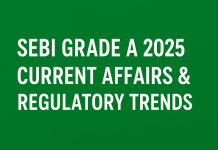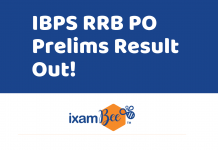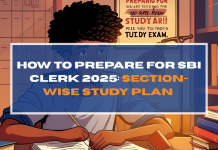General Awareness can quietly decide your SEBI Grade A Phase 1 outcome. It is the section that rewards focused reading and steady revision. It is quick to attempt, rarely needs calculations, and hands you marks faster than most other sections—if you prepare the right way. This guide breaks the job into three practical parts: what to study, how to revise so facts stick, and how to approach the paper to score big. Read it with a cup of tea or coffee beside you and a notepad ready. You will want to make and keep some short notes as you go.
Studying everything is a trap. The aim is to cover themes that show up in SEBI papers and questions that test knowledge of markets, policy, and recent regulatory moves. Organise your study around these pillars.

Current Affairs with Economic and Financial Color
Focus on the last four to six months at a minimum. Read with an eye for the market angle. Ask while you read: how will this affect investors, markets, banks, or regulators? Important items here include:
- National and international headlines that carry economic weight
- Policy changes, major corporate actions, and government announcements that touch markets
- Appointments to regulator posts, major mergers, and high profile reports
Keep a simple habit like noting down points like what happened, who was affected and why the stock markets care when you read a news item. That three-part prompt keeps you exam ready.
Financial and Banking Awareness
This is important. SEBI Grade A Exam for 2025 favors candidates who can link everyday market terms with policy implications. Key topics to know thoroughly:
- Banking terms: NPA, CRR, SLR, repo rate, reverse repo, CRR adjustments, liquidity measures
- Capital market basics: IPO, FPO, rights issue, bonus issue, mutual funds, ETFs, index construction, derivatives basics
- Monetary and fiscal policy changes: budget highlights, key announcements in the Monetary Policy Committee statements, RBI notifications that affect liquidity or interest rates
Keep a one-liner file for each banking term and a short table for corporate actions. The one-liner approach means you can revise quickly.
SEBI and Securities Market Awareness
This is the single most important bucket for SEBI Grade A General Awareness. Study these:
- SEBI’s mandate, structure and standard functions
- Recent SEBI circulars, regulations and reforms that affect listed companies and market participants
- Key investor protection measures, disclosure norms, and enforcement action frameworks
When you read any SEBI update, write down the core change, the intended beneficiary or affected party, and the likely market consequence. That little habit turns dry regulation into exam fodder.
Government Schemes and Economy-Linked Initiatives
SEBI questions often test schemes that influence markets or financial inclusion. Focus on flagship programmes that affect banking, agriculture, MSMEs, start-up financing, or market access. For every scheme note the ministry, objective, and target group. Those three fields appear in exam questions frequently.
Static Facts and High-Yield Miscellany
This is compact, exam-oriented static GA. Items include:
- Important days, frequent appointments, and awards linked to economics or finance
- Major reports and indices, and who publishes them
- Committees and their chairpersons when they relate to finance, corporate governance, or markets
- If a topic never showed up in past SEBI papers, keep it low priority. Focus instead on recurring themes.
How to revise SEBI Grade A General Awareness Better
Reading once is not enough. GA is a memory task. You need structured, repeated exposure. Here is a system that works without consuming every waking hour.
Daily routine — 30 to 45 minutes
- Pick one curated current affairs capsule, or a short weekly PDF that is exam-focused. Resist the urge to hop from site to site.
- Mark items that link to SEBI, RBI, markets, and schemes.
- Convert every important point into a one-liner or a two-row table entry. Keep these micro-notes on your phone or a small notebook.
A practical tip. Use a small, physical notebook for micro-notes and a digital file for monthly consolidation. Writing by hand helps memory in a way typing often does not.
Weekly Revision Ritual
At the end of each week:
- Revisit the seven days’ micro-notes.
- Take a short quiz of 25 to 30 questions on that week’s content. Even a self-made quiz is fine.
- Tag your errors. If you miss a question on a particular report, tag that theme as “weak” for faster future review.
The weekly quiz is the real work. It forces retrieval rather than passive re-reading. Retrieval is how retention happens.
Monthly Consolidation
At the end of the month,
- Attempt a GA-only mock or a sectional test.
- Analyse repeated mistakes. Are you missing schemes, committee names, or SEBI circulars?
- Re-prioritise your reading plan. Spend the next month shoring up the weakest theme.
Over time your error map will reveal patterns. Focus on those patterns. That is faster than blind re-reading.
Micro-notes: your 7–10 day revision weapon
Make micro-notes in the form of:
- One-liners: “Scheme – Ministry – Objective – Target group”
- Tiny tables: “Report – Released by – India rank – Theme”
- Flashcards: digital or physical, just one question per card
These micro-notes become the last ten days’ rapid revision stack. When time is tight, they deliver quick wins.
How to Score High in General Awareness on Exam Day
Preparation is necessary, but exam strategy turns preparation into marks. These are the moves you should practice.
Attempt General Awareness Early
GA questions are often either you-know-it or you-do-not. Attempting this section early helps. It builds momentum and frees mental space for Quant or Reasoning later. If you finish GA in 12 to 15 minutes with strong accuracy, you gain a psychological edge.
Play the Accuracy Game, Not Blind Guessing
GA rewards precision. Wild guessing is costly in negative marking systems. Use elimination only when you can safely remove at least two choices. If you cannot, move on and return if time allows.
Use Limited, Consistent Sources
One good current affairs source plus one financial awareness compilation and previous year papers is sufficient. The real win is revision, not hoarding PDFs. New material without revision is noise. Keep your source count low and stick to it.
Align General Awareness study with SEBI’s nature
Give extra weight to topics SEBI cares about:
- SEBI notifications and investor protection measures
- Capital markets mechanics
- Mutual funds and disclosure norms
- RBI policy decisions when they impact markets
If you read a general news item, translate it into the market language. Ask: how does this interact with SEBI’s mandate or capital market players?
Use mock tests like a mirror
After every GA sectional or full SEBI Grade A mock test:
- Track accuracy and the themes of wrong answers
- Identify which themes repeat as weaknesses
- Make those themes next week’s priority
When you treat mocks and SEBI Grade A Previous Year Papers as mirrors, not scoreboards, you learn where to fix things.
Example study week for General Awreness (practical layout)
- Day 1 to Day 5: Daily capsule 30–45 minutes. Convert items to micro-notes.
- Day 6: Weekly revision. Take a 30-question quiz. Tag errors.
- Day 7: Rest or light read of SEBI website updates and major committee reports.
- End of week: add weak-theme flashcards to the front of your revision deck.
- Monthly: do a GA mock, mark the themes you miss, and rearrange priorities.
Sample micro-note entries you can make right away
- Committee: “Kochhar Committee – Purpose – Key recommendation”
- Scheme: “PM SVANidhi – Ministry – Objective – Beneficiary”
- Report: “Global Competitiveness Report – WEF – India rank – Focus area”
- SEBI update: “Circular on XYZ – Date – Main clause – Affects which participants”
These small, consistent entries are far more valuable than a dozen long summaries.
Common Mistakes and How to Avoid Them
Mistake 1: Reading too many sources and not revising
Solution
- Choose two dependable sources.
- Take one full monthly mock.
- Repeat the cycle.
Mistake 2: Treating General Awareness as last-minute fodder
Solution
- Make general awareness a daily habit.
- Use short, frequent study sessions rather than cramming.
Mistake 3: Ignoring SEBI-specific content
Solution
- Spend one weekly session on SEBI press releases or regulatory summaries.
- Focus on that direct source since many questions originate there.
Mistake 4: Not tracking errors
Solution
- Keep an error log.
- If you miss the same question type three times, mark it top priority.
Tools and Techniques That Help in SEBI GA Preparation
Use tools that make revision steady and repeatable. Flashcards help you cycle through facts and committee names with spaced repetition. A small one-liner bank keeps schemes and reports easy to review. A short weekly mock of even twenty focused questions sharpens recall. An error heatmap, built in a simple spreadsheet, shows which themes need extra work. Most of all, try to read every financial news item with a market lens so you notice why a bank move or an IPO matters to investors.
Summing Up
SEBI Grade A General Awareness is not that big a mystery. It rewards disciplined reading, tidy notes, disciplined revision, and smart test strategy. People believe GA is either luck or memory. Rather, it is a blend of practice and a methodical approach.
Of course, forgetting things is normal. You can reduce that by making notes regularly. This is possible only through practicing increasingly. If you follow the system above, you will be able to attempt GA sections quickly and with accuracy. You will recognize patterns in SEBI questions because you have practiced mapping news to market impact. And that mapping is the real edge.
At ixamBee, we specialize in providing comprehensive online courses for government exams and online courses for government jobs. Our expertly designed courses for government jobs cater to a wide range of upcoming government exams. Whether you’re preparing for specific courses for government exams or seeking general guidance, ixamBee offers resources like Beepedia previous year papers, SSC CGL, SSC CHSL, SSC MTS, and other mock tests to succeed in exams like RBI Grade B, SEBI Grade A, NABARD Grade A, RRB NTPC, SSC MTS, NIACL Assistant, and more.
Also Read
How to Prepare for SEBI Grade A IT Officer Exam 2025
How to Prepare for SEBI Grade A Legal Officer Exam 2025
NABARD Grade A Recruitment 2025: Syllabus, Eligibility, Salary & More















